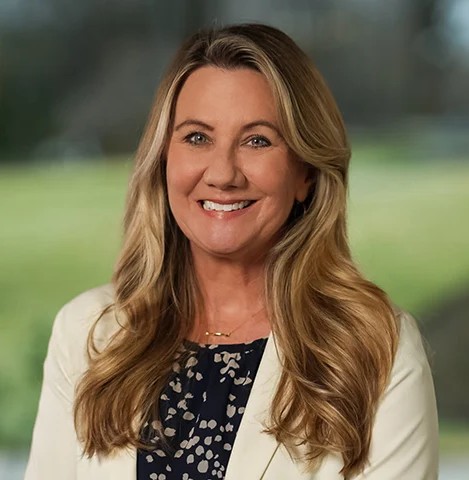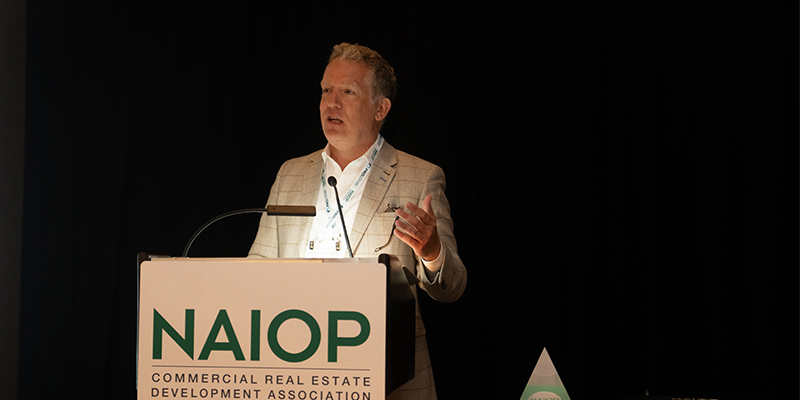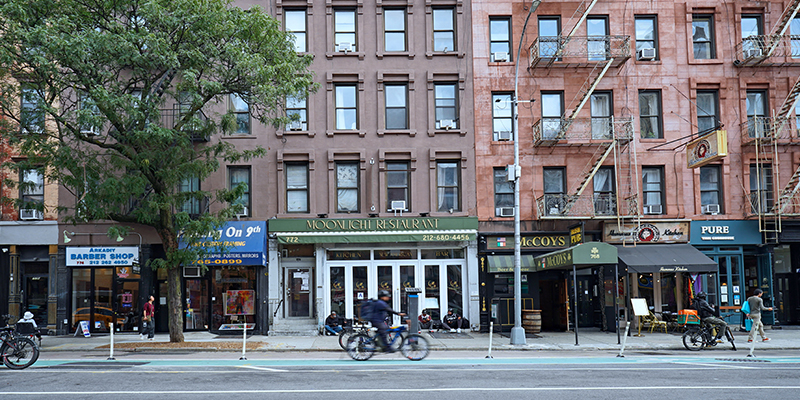On May 17 in Charlotte, North Carolina, NAIOP and REEC (Real Estate Executive Council) hosted their first joint diversity, equity and inclusion (DEI) roundtable event since the COVID-19 pandemic. More than 50 people attended this event held at the end of the REEC conference.
The goal of the roundtable event was to convene a group of commercial real estate professionals who are passionate about advancing the interests of DEI for an interactive conversation about the state of DEI in the CRE industry and discuss ways to continue to make progress.
The event was facilitated by Dionna Sallis from Ferguson Partners. Panelists included Chasity Boyce, head of U.S. and European business management, Barings; Sonia Huntley, senior vice president, DEI, Urban Land Institute; Joe Ritchie, managing director of business development and head of diversity and inclusion, Tishman Speyer; and Taidgh McClory, THM Advisors.
Ken McIntyre, Chief Executive Officer of REEC, and Shaine Anderson, executive Vice president and Chief Operating Officer of NAIOP, welcomed attendees and offered background as to why this event was started back in 2018. Both expressed gratitude for the long-standing partnership that has existed between REEC and NAIOP, with the mission of advancing DEI in the commercial real estate industry.
Dionna Sallis began the panel discussion by citing Ferguson Partners’ research that shows that between two and four percent of the commercial real estate industry are people of color.
Chasity Boyce, an attorney, offered an informative overview of the historic 2023 Supreme Court case ruling that effectively put an end to race-driven admission decisions at colleges and universities. The panelists discussed the “trickle-down” effect that this decision has had in corporate America, noting that the sentiment for DEI has shifted. In 2020 and 2021, many corporations significantly shored up their DEI efforts, adding staff and expanding budgets. Now, we are seeing a shift away from those priorities and many of the DEI roles that were added are either being eliminated or the people in these roles have left.
While the recent Supreme Court decision certainly introduced new headwinds, the panelists also agreed that in some ways, it has bolstered DEI efforts. Some companies that had a strong strategic commitment to DEI have become even more emboldened by the decision.
The panelists also discussed and acknowledged the very real “fear factor” when it comes to discussing DEI. Some people worry that talking about DEI will lead to retribution, punishment or getting “cancelled.” This silence is extremely counterproductive to progress. To enact meaningful change, we need to be able to have open and honest dialogue.
Sonia Huntley shared information about the Urban Land Institute’s commitment to DEI. Based on member feedback, over the last few years, ULI has carefully examined its approach to DEI and has emerged with an even stronger commitment. As part of this commitment, Huntley was appointed their first senior vice president of DEI. Part of her directive is to place well-qualified members of the BIPOC community in leadership positions both in ULI and the commercial real estate industry.
All panelists acknowledged that increasing diversity and inclusion in our industry will take a sustained, committed effort over decades, including increased resources and changes in company infrastructure.
Joe Ritchie explained the commitment to DEI that he has seen at his firm, Tishman Speyer, starting with Tishman Speyer’s CEO. Ritchie emphasized the importance of the CEO’s role in the success of Tishman Speyer’s DEI efforts, saying that it is now an integral part of the company culture. This could not have happened without the CEO’s efforts.
One of Ritchie’s goals is to increase senior leadership opportunities for diverse candidates at Tishman Speyer. The CRE industry faces a workforce challenge that will likely only intensify; it’s important for senior leaders to understand that welcoming diverse individuals into our industry is a business imperative – in other words, it’s not just a nice to have, it’s a need to have. To consider commercial real estate a viable career, young people need to see other people who look like them in leadership roles.
Taidgh McClory built upon Ritchie’s comments by accentuating the business case for DEI. In his work, he urges companies to look at not just their talent pipeline but to look at the company holistically, including supplier diversity and their capital partners. He referenced a 40-item checklist that his firm has developed to allow companies to assess their DEI status. He has noticed that most companies fall into stage two; In other words, they’ve started their efforts, but there is much more room to grow.
Group sentiment was that there has been progress with DEI in commercial real estate over the last decade. However, there is much progress yet to be made and this will take a comprehensive, sustained commitment from the top leaders in our industry.
If you would like to be invited to the next NAIOP/REEC DEI Roundtable event in spring 2025, please email Shaine Anderson at Anderson@naiop.org.








